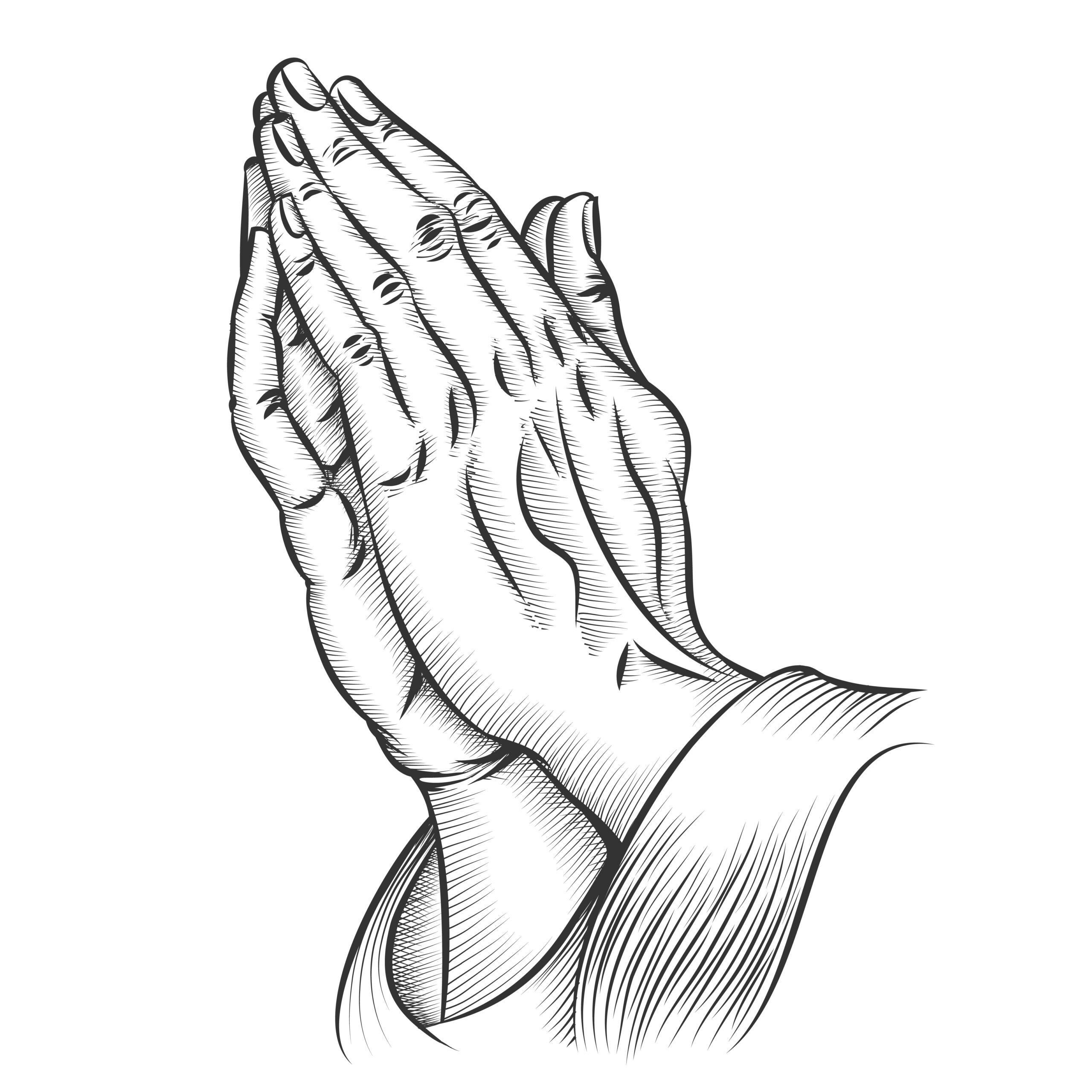Sermon Sunday July 27th, 2025
Rev. Norman A. Michaud
Luke 11:1-13
Our passage from Luke’s Gospel this Sunday provides us with the Debts and Debtors language we use in many Protestant denominations. Debts and debtors also appear in Matthew 6:9-16. In Matthew, after the Lord’s Prayer, Jesus tells the disciples to forgive the trespasses of others, but Jesus does not ask that we forgive ourselves.
When my sister, Margaret, and I were babies, we shared a bedroom. We slept in the same room until she was twelve and I was eight. Both my Grandmother and mother taught us to pray. The bedroom had a cross on the sealed fireplace mantel that glowed in the dark after the lights were turned off. It glowed all night. Of course, it glowed because it had Radium-226 embedded in the Bakelite, which was also used in the faces of watches and clocks. But heck, we lived in a time when President Eisenhower proclaimed “Atoms for Peace” in 1953. What could bring more comfort to a child than seeing a miraculous, glowing cross if the child wakes in the dark? The use of radium for glowing clock faces did not end until 1968. By then, my sister was in college, and I had not been exposed since 1960.
Most likely, my sister and I prayed before bed before I was two, but my recollection of this ritual became clearer by the time I was three or four years old. Every night, my mother would have us clasp our hands together, our small fingers pointing to heaven, and we would speak to God. We would repeat the Lord’s Prayer, as we recite it every Sunday in this sanctuary, in the “debts and debtors” version, which comes directly from Matthew 6:9-16.
The Lord’s Prayer appeared in the Geneva Bible, an English translation that was mass-produced in 1560 using the printing press. The Geneva Bible was the only Bible the Pilgrims carried with them when they settled in Plymouth. The Geneva Bible translation was derived from the Wycliffe Bible, published in 1382, around the same time Chaucer wrote the Canterbury Tales. The Catholic Church banned Wycliffe’s Bible. After John Wycliffe died in 1384, his body was exhumed and burned as a punishment for heresy. The idea behind this concept is linked to the notion that the body must be whole to rise from the dead on Judgment Day. Burning the body and bones assured that a heretic could not rise to heaven.
John Wycliffe’s heresy was translating the Bible into English, so that the few English speakers who could read could access the Bible in their native language. His meticulous translation, updated during the reign of Queen Elizabeth, was incorporated into the Geneva Bible, which Shakespeare may have read. However, until then, Catholics and Episcopalians only read from the Vulgate in Latin, so only religious scholars could read it.
Each night, after we said the Lord’s Prayer, forgiving debts and debtors, we recited a second prayer, “Now I lay me down to sleep, I pray the Lord my soul to keep. If I should die before I wake, I pray the Lord my soul to take.” This prayer originated in 1711 and was included in the children’s version of the Common Book of Prayer. As a child, this prayer was uncomfortable for me. The idea of death terrified me, but I did not understand the finality of death until my Grandmother passed in 1961, the same year that my sister and I got separate bedrooms.
My sister and I prayed The Lord’s Prayer and “now I lay me down to sleep” under the watchful eyes of our mother. Although as children, our prayers were routine, they stuck with us throughout our lives. Rote prayer became a part of our daily lives and continues to be a part of our lives today. I learned that God is good, someone to turn to daily. In Sunday school, I learned reasons to pray: to praise God, thank God, ask God’s pardon, and ask God for what I needed, or even wanted—provided the prayer ended with “however, not my will but yours be done,” as Jesus did at Gethsemane.
Our Gospel today is more than a recounting of a Holy moment in the life of Jesus. Jesus taught his disciples how to pray and what to pray for. Prayer was an integral part of his life and the lives of his devoted followers. These prayers bind all Christians, no matter denomination or sect. My debt to God is to pray as Jesus taught us to pray. Our silent prayers often ask for wisdom and guidance in times of trouble. We also pray in gratitude when such prayers are answered.
Jesus responded to the request of his followers that he teach them how to pray. What he taught them became important—and has remained important—for the life of the church. He gave them—and us—words to address God, words to praise God, and, only then, words to petition God. Jesus begins, “When you pray, say: ‘Father, hallowed be thy name; your kingdom come.’”
In a world where existence was so fragile—a condition that has not changed but seems to have only increased today—Jesus’ prayer reminds us that there is one who has power over all and who is near to us. Jesus’ prayer implores God to truly take charge of life our lives, to bring justice and peace to our world, something only God can bring about. The remaining petitions concern three basic needs: food (“Give us each day our daily bread”), forgiveness (“And forgive us our debts, for we forgive everyone indebted to us.”)
These petitions name what is essential for the life of our bodies, the life of our communal body—be it society, the church, or the world—and the life of our ongoing relationship with God. These are the gifts of the kingdom, which will not be refused, because they flow from our being united with the very being of God, who sustains, forgives, and is faithful to us.
Luke goes on to say that God’s way of giving exceeds that of human friends, gifting all who ask with the Holy Spirit. Today’s Gospel invites us to reflect on the story of our prayer life and where it has taken us. We owe a debt of gratitude to those who helped us discover the importance of prayer as an essential part of our lives. So we continue to ask our Creator to teach us to pray. Teach us truly to pray the words given by your Son, calling on God as our parent and protector.
Suppose God is in some deep and eternal sense like Jesus. In that case, we can talk: through thick or thin, come hell or high water, because nothing—”neither death nor life nor angels nor principalities nor powers nor things present nor things to come nor height nor depth nor any other creature—will be able to silence the Word that answers our prayers.”
We continue to teach those entrusted to us to pray as Jesus taught us, confident that our prayer will find favor with our God.
Let peace come. Let freedom ring. May Justice prevail. May Christ’s light break the darkness.


